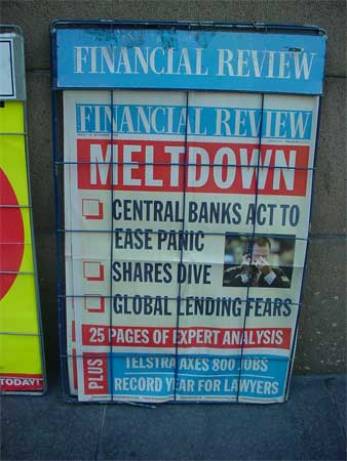
Money, banking & insurance
Phone to phone cash transactions
The idea of virtual money has been around for ages but so far all attempts to make the idea a reality have failed or have only met with limited success. This is about to change in Japan where the 'big three' mobile phone companies (NTT, DoMoCo and KDDI) have launched phones that allow users to message money to friends or shop for everyday items. The technology that enables this (the 'Edy' chip as its known) has been developed by Sony, NTT and DoMoCo and works by simply swiping the phone across a reader in one of the 20,000 retailers that have already agreed to be part of the scheme. If you want to send cash to a friend the sender and recipient each have to enter a password to activate the transaction. Phones can be charged with up to GB £250 and, because the money is not connected to either the user's phone bill or credit card, security concerns have been neatly sidestepped.
Ref: The Times (UK) 9 July 2005, 'Japanese mobiles bring virtual cash to the real world', L. Lewis. www.timesonline.co.uk
Trend for plastic
Britons spent a record GB £436 billion on plastic debit cards, credit cards, store cards and charge cards during 2004 (up 11% on 2003), while use of cheques and cash continued to decline. This represents 60% of total UK household expenditure. Indeed, plastic has rapidly become the payment option of choice for everyday transactions and borrowing. Use of debit cards saw the largest annual increase (17%) while credit card use grew by 9% overall. Store card use, in contrast, declined by 17% due to awareness of high interest rates. Meanwhile, there has been a 37% increase in the number of personal bankruptcies in the UK over the period April to June according to Department of Trade and Industry figures. Moreover, the half-year figure for personal insolvency is at the highest level since records began in 1960. So what's going on? According to Mike Gerrard, an insolvency expert at Grant Thornton, it's happening because consumers are consuming too much and borrowing excessive amounts to fund unsustainable lifestyles. As for what's next, who knows, but it's interesting to note that Barclays bank has increased the amount of money set aside to cover bad debts by 20%.
Ref: Weekly Telegraph (UK) Issue No. 735. 'Cash out of fashion as plastic debt soars', D.Derbyshire. www.telegraph.co.uk Weekly Telegraph (UK) Issue 733 ' Bankruptcy now a lifestyle choice', M.Moore.
Chips with everything
The CEO of a US investment bank has had an RFID tag surgically inserted into his arm. Jon ('Chip'?) Merriman's firm, Merriman Curhan, Ford & Co are advisors to a Florida based company called VeriChip who make pet ID implants and RFID enabled medical bracelets. The act was clearly a stunt ("for the team") but Mr Merriman is one of 50 people in the US to get chipped and justifies the procedure on the basis that his will is just a quick scan away if he is ever involved in a serious accident or medical emergency.
Ref: Red Herring (US) 19 September 2005, 'Banker gets ID chip implant'. www.redherring.com See also salon (US) 7 September 2000. 'Put that chip where the sun don't shine', K.Mieszkowski. www.salon.com
Innovation is on the cards
In the US you can apply for a PayPal credit card (courtesy of PayPal and Visa) but the card is essentially just a normal Visa card. So why can't PayPal launch a card that is actually linked to your PayPal account? In other words, you would accumulate virtual cash via your PayPal account and then spend it in the real world using plastic without logging on to transfer cash or lifting a finger. Meanwhile, in the UK, American Express has launched a pre-paid, re-loadable card to replace traditional travellers cheques. If the card is stolen it can usually be replaced within 24-hours.
Ref: Blowblog.com (UK)
